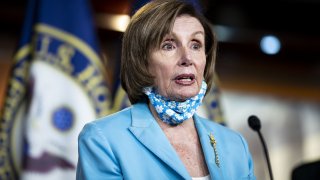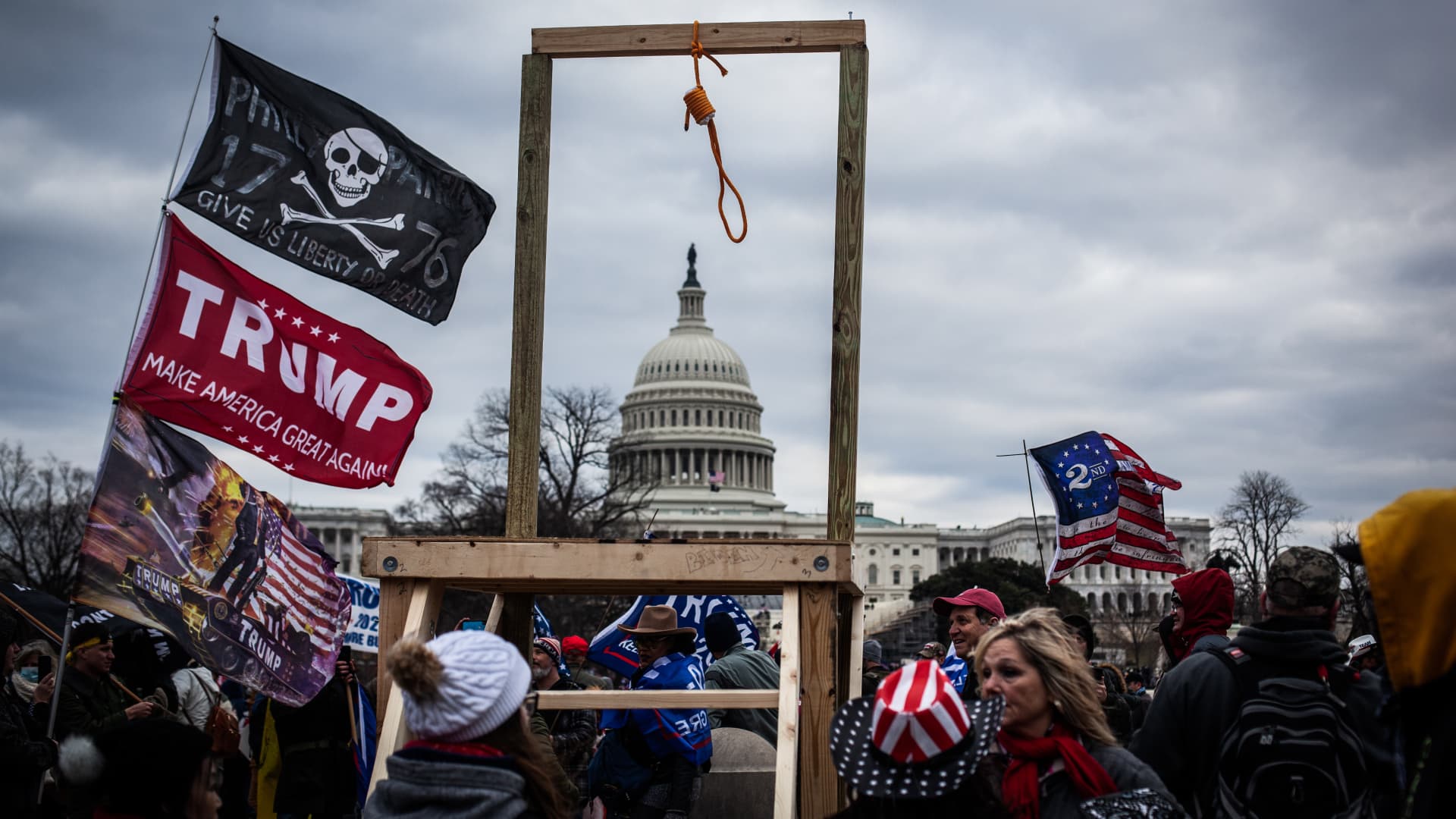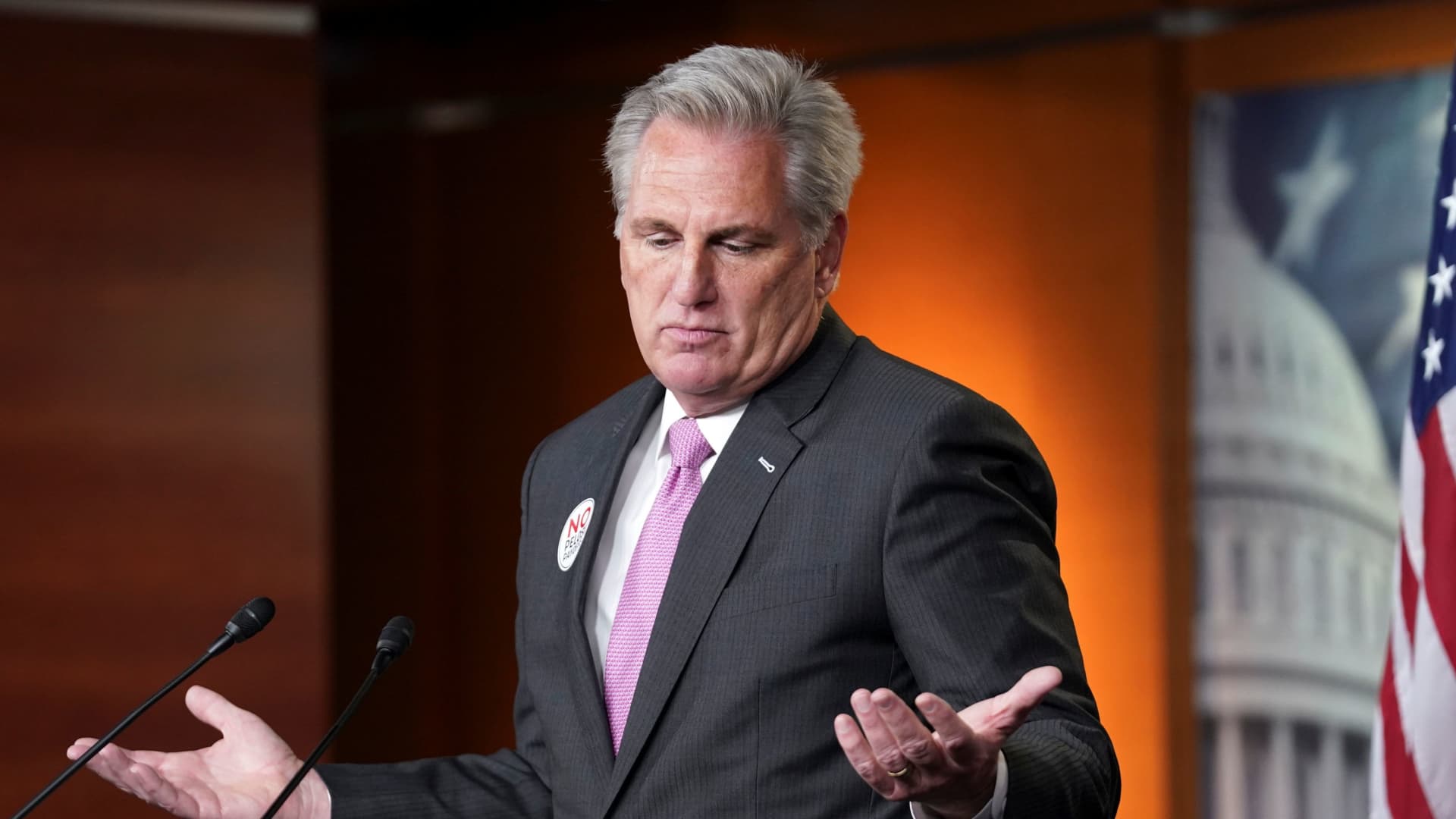
- The House passed a bill Wednesday to create a commission to investigate the Jan. 6 insurrection at the U.S. Capitol.
- The chamber approved the measure with bipartisan support, even as House Republican leaders urged their caucus to oppose it.
- The bill's passage in the Senate is unclear, as Minority Leader Mitch McConnell said he would oppose it.
- The 10-member panel would probe what led to the attempt to disrupt the peaceful transfer of power, and issue a report after it finishes the investigation.
The House passed a bipartisan bill Wednesday to create an independent commission to investigate the Jan. 6 insurrection at the U.S. Capitol as the chamber's GOP leaders lobbied against its passage.
The plan would set up a panel to probe the attack on the legislature by a mob of Trump supporters, which led to the deaths of five people, including a Capitol Police officer. Democratic and Republican leaders would each appoint five people to the 10-member commission, which would issue a report after it finishes its investigation. The panel would have subpoena power.
Get Tri-state area news delivered to your inbox.> Sign up for NBC New York's News Headlines newsletter.
The Democratic-held House passed the measure with GOP support in a 252-175 vote, as lawmakers seek more information on what led to the violent attempt to disrupt the transfer of power to President Joe Biden. House Minority Leader Kevin McCarthy, R-Calif., opposed the plan and his leadership team formally urged Republicans to vote against it. Thirty-five GOP representatives supported the measure, while 175 Republicans voted opposed it.
The bill will have a harder time getting through the Senate. While Senate Majority Leader Chuck Schumer, D-N.Y., plans to bring it to a vote, Minority Leader Mitch McConnell, R-Ky., announced his opposition to it Wednesday. Democrats would need only 10 GOP votes to approve the measure in the Senate, but McConnell's stance deals a blow to its prospects.
"It's not at all clear what new facts or additional investigation yet another commission could actually lay on top of existing efforts by law enforcement and Congress," McConnell said. "The facts have come out and they'll continue to come out."
Money Report
Ahead of the House vote Wednesday, Schumer said the chamber's Republican leaders "are caving to Donald Trump and proving that the Republican Party is still drunk off the big lie."
A mob of supporters of former President Donald Trump, fueled by his unfounded claims that widespread fraud propelled Biden's 2020 election win, overran the Capitol while lawmakers formally counted the president's victory. The rioters came within moments of reaching members of Congress and former Vice President Mike Pence — who rejected Trump's pressure to use his ceremonial role in the process to help to overturn the election result, prompting chants of "Hang Mike Pence!"
House Democrats, joined by 10 Republicans, impeached Trump for inciting an insurrection during his final days in office. The Senate acquitted the former president after he left the White House. All 50 members of the Democratic caucus and seven Republicans voted to convict him.

Republican criticism of the commission deal comes as much of the party tries to downplay the attempts to disrupt the transfer of power or compare them to other political violence or property damage. House Republicans in particular have aimed to curb criticism of Trump — the most popular figure in their party — as they try to win back control of the chamber in the midterm elections next year.
In statement announcing his opposition to the commission deal Tuesday, McCarthy contended the panel should have a broader scope. He also said he worried it could duplicate investigative efforts by congressional committees and the Justice Department.
"Given the political misdirections that have marred this process, given the now duplicative and potentially counterproductive nature of this effort, and given the Speaker's shortsighted scope that does not examine interrelated forms of political violence in America, I cannot support this legislation," McCarthy, who voted to object to counting Arizona and Pennsylvania's certified 2020 election results, said.

Ahead of the vote Wednesday, House Majority Leader Steny Hoyer, D-Md., lambasted Republicans for likening an armed disruption of the transfer of power to other violence. He said the GOP appeared to be trying to "confuse the issue enough that we'll lose sight of the insurrection on Jan. 6."
Hoyer added that he did not know of "any other instance that is analogous" to the attack on the Capitol during his roughly four decades in Congress.
The concerns from Republicans come after a lawmaker from both parties, Homeland Security Committee Chair Rep. Bennie Thompson, D-Miss., and ranking member Rep. John Katko, R-N.Y., brokered the agreement. Katko responded Wednesday to concerns from within his party about Democrats using the panel for political means.
"I ask my colleagues to consider the fact that this commission is built to work, and it will be depoliticized, and it will get the results we need," he said.
House Speaker Nancy Pelosi, D-Calif., has also criticized GOP lawmakers for opposing the commission agreement. In comments to NBC News, she said she saw "cowardice on the part of some on the Republican side," who do not "want to find the truth."
Before the vote Wednesday, she called the commission critical to understanding the attack on the Capitol.
"This legislation is about something larger even than the commission, vital as the commission is. This legislation is about our democracy," Pelosi said.






